For going back to Japanese pages, press  buttons.
buttons.
Editor's Note (Toru Nakagawa, Sept. 6, 2016)
Last week, on Sept. 1-2, 2016, the 12th Japan TRIZ Symposium 2016 was held at Waseda University in Tokyo, with a success of 141 participants. In the present page I am posting my presentation slides in English (I talked in Japanese, and slides are projected in English and in Japanese, in parallel.) Oral session has a slot of 25 minutes of talk (including Q&A) and 5 minutes intermission afterwards.
As the result of my research for the last one year, I gave a presentation about my trial of applying TRIZ/CrePS to a social problem. In the present Home Page, the research results have been posted step by step. This page (in English) posts:
Abstract (first submitted in mid May; and slightly revised in late July)
Presentation slides (submitted in late July) in HTML and in PDF  :
:
Table of Contents of the presentation slides:
Title: TRIZ/CrePS Approach to the Social Problems of Poverty: Underlying the Arguments by Ordinary People, 'Liberty vs. Love' Is Found the Principal Contradiction of the Human Culture
(0) Introduction and Outline of Talk
(1) CrePS (General Methodology of Creative Problem Solving)
(2) Seek to apply TRIZ/CrePS to real social problems: The problem of Poverty in the Japanese Society
(3) Visualizing the logics of "The Low-living Elderly" book (Fujita, 2015)
(4) Reviewing the 82 readers' reviews on Fujita's Book
(5) Focus on the contradiction problem underlying beneath the arguments by ordinary people
(6) New recognition: Liberty vs. Love: The Principal Contradiction of the Human Culture
(7) Why the Principal Contradiction is So Difficult to Solve?
(8) Future Research Tasks
(9) Summary of the Present Research in the Six-Box Scheme
Some of engineers in industries might be puzzled with my presentation, because TRZ has been applied in technologies and business problems only. A sophomore student, who was working as an assistant staff, told me that he was much impressed with my presentation, to my surprise. Probably he listened to my presentations freshly without any fixed image on TRIZ.
Note: The paper will be presented in a slightly revised form and with a full paper of 6 pages at the coming ETRIA TFC 2016 to be held on Oct. 24-27, 2016 at Wroclaw, Poland.
 Abstract
Abstract
TRIZ/CrePS Approach to the Social Problems of Poverty:
Underlying the Arguments by Ordinary People,
'Liberty vs. Love' Is Found the Principal Contradiction of the Human Culture
Toru Nakagawa (Osaka Gakuin University & CrePS Institute).
12th TRIZ Symposium in Japan 2016
September 1 - 2, 2016, Waseda University, Tokyo
Abstract
The present paper is the first report of applying the TRIZ and CrePS methodologies to a complex social problem. TRIZ, which was established originally in the fields of technologies, is newly applied to broad social problems, specifically, the poverty problem in the Japanese society.
First, for understanding the problem situations, I selected "The Low-living Elderly" book (by Takanori Fujita, 2015) as the source reference and visualized the logics in the book with the Fuda-Yose Tool (developed by Akihiro Katahira) in the diagrams similar to the Affinity Method diagrams (in a pamphlet of 24 pages). Then I closely examined the 82 customer reviews of the book contributed to the Amazon site. As the results of these surveys, I recognized, underlying the arguments by ordinary people, a fundamental problem related to 'Win-or-Lose and Mutual aid in the Competitive society'.
Deeply beneath their arguments, I have found that 'Liberty and Love' are the Principal Guiding Principles of Human Culture and yet 'Liberty vs. Love' is the Principal Contradiction of Human Culture. Both Liberty and Love are contained, motivated, and coordinated by Ethics. In various levels of social systems built by the Human Culture, the relationships among Liberty, Love, and Ethics need to be studied in their current and also desirable models. Such models will guide us to new possible solutions for various social problems including the poverty problem.
 Presentation Slides PDF
Presentation Slides PDF  (28 Slides、2.8 MB)
(28 Slides、2.8 MB)
Title
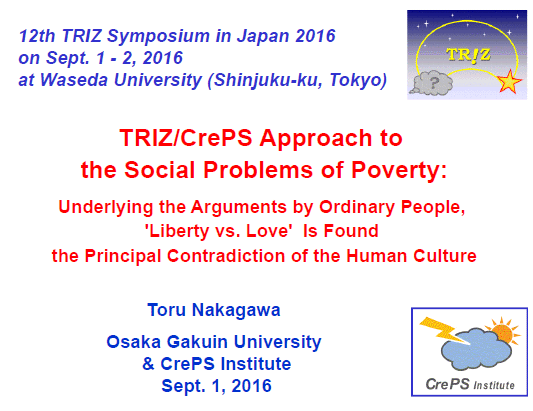
(0) Introduction and Outline of Talk
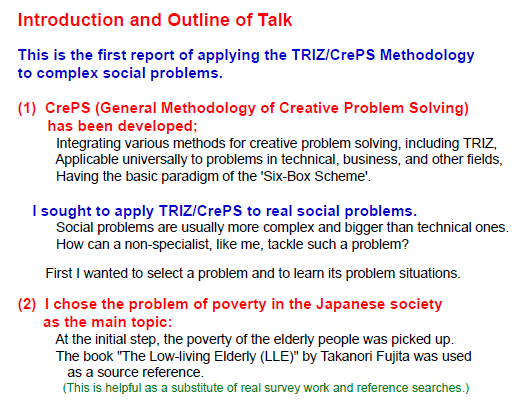
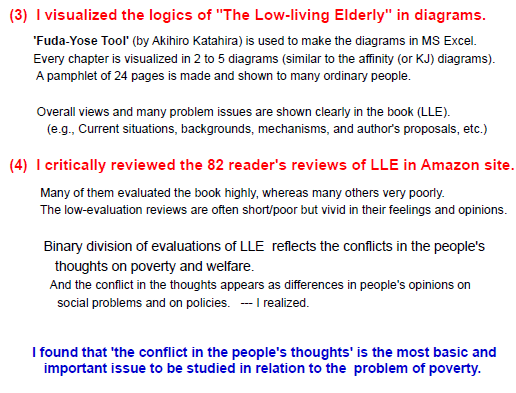
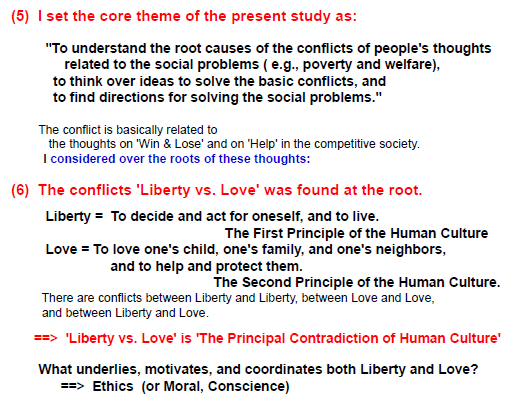
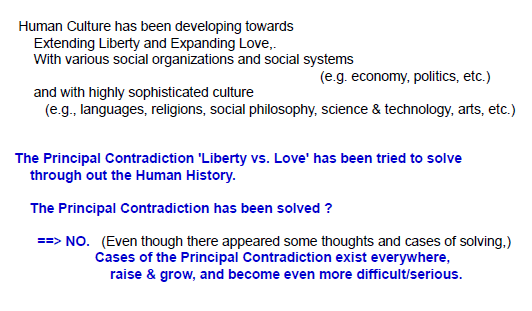
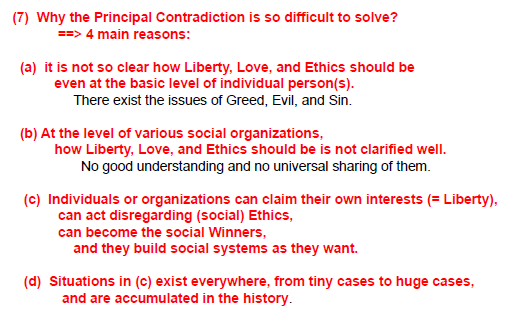
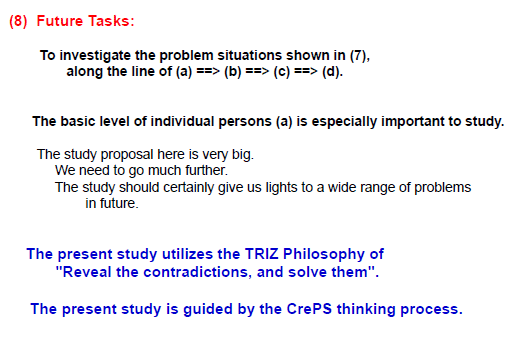
(1) CrePS (General Methodology of Creative Problem Solving)
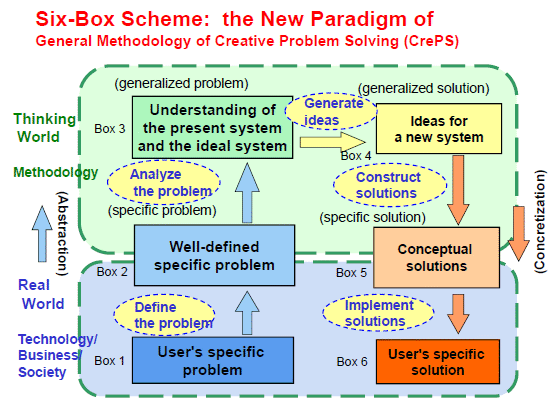
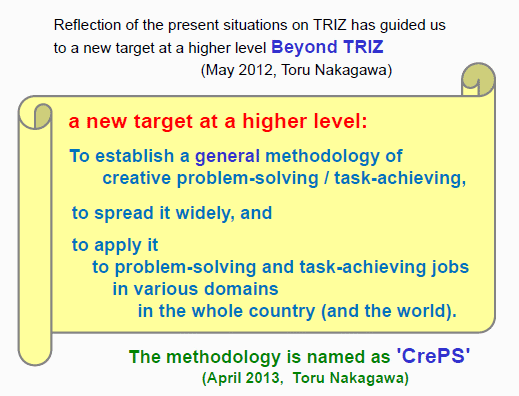
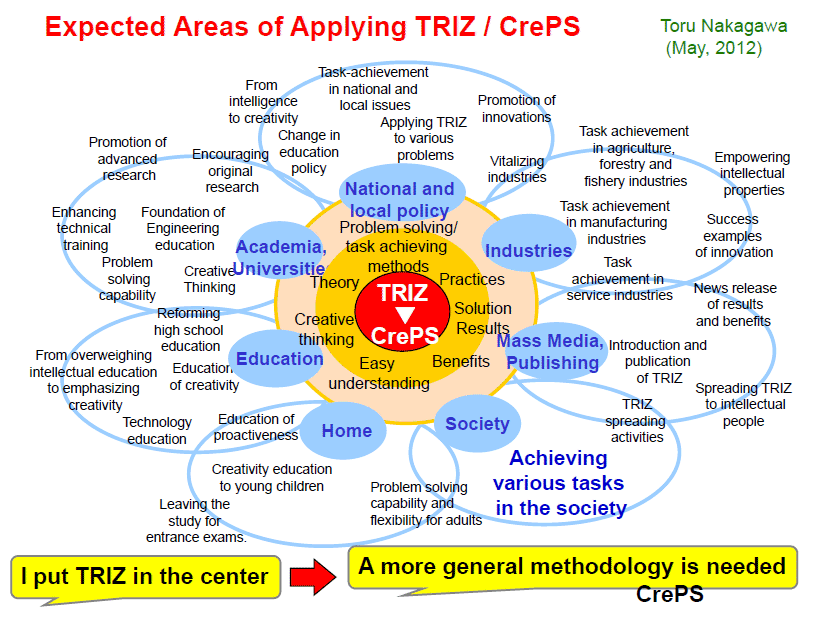
(2) Seek to apply TRIZ/CrePS to real social problems: The problem of Poverty in the Japanese Society
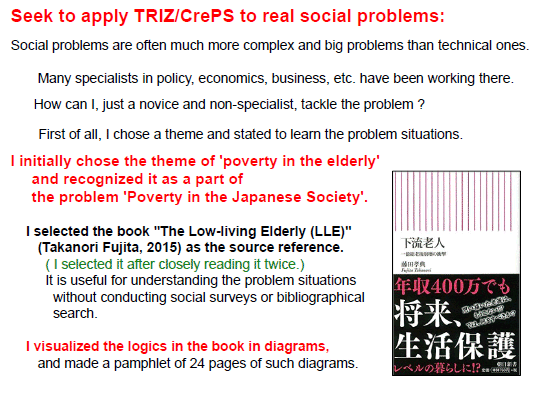
(3) Visualizing the logics of "The Low-living Elderly" book (Fujita, 2015)
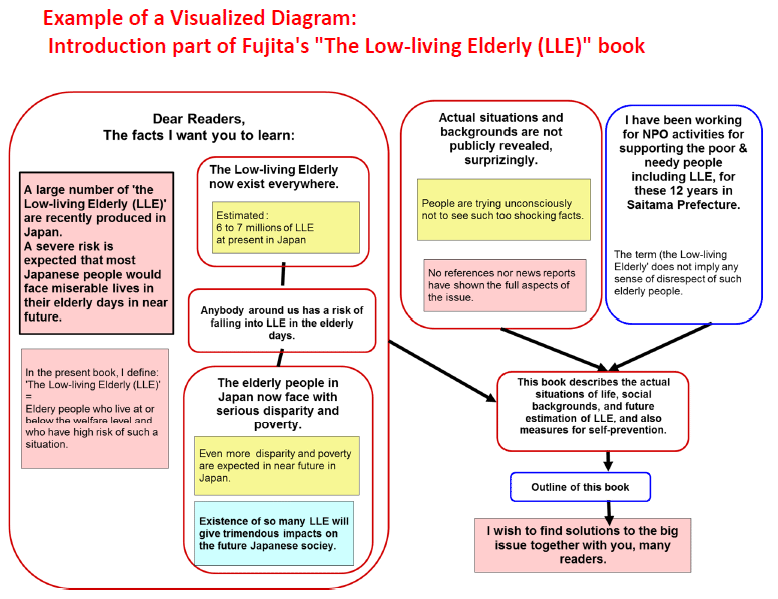

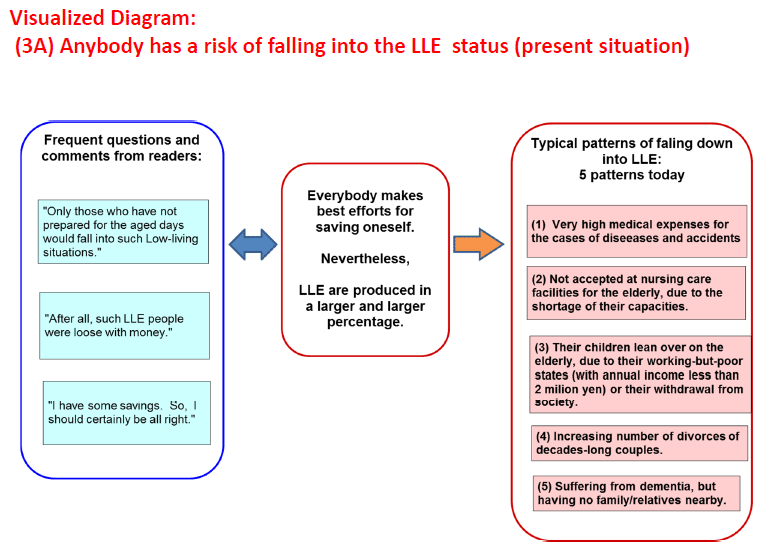
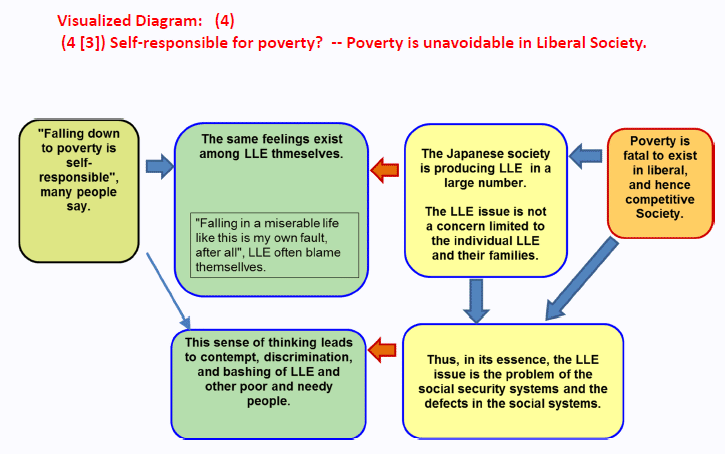
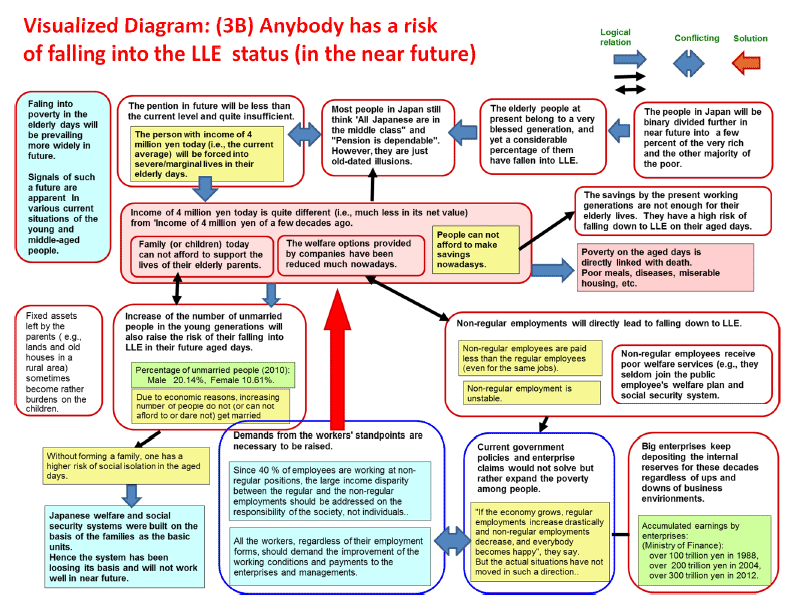
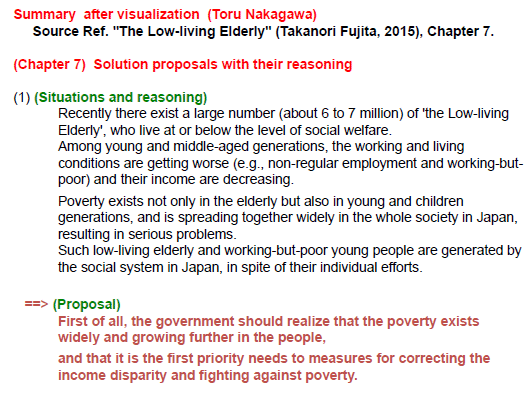

(4) Reviewing the 82 readers' reviews on Fujita's Book
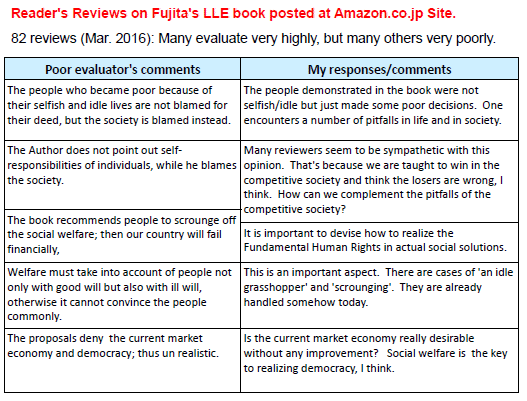
(5) Focus on the contradiction problem underlying beneath the arguments by ordinary people
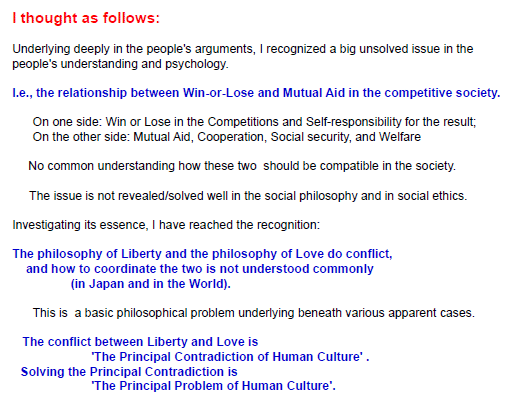
(6) New recognition: Liberty vs. Love: The Principal Contradiction of the Human Culture
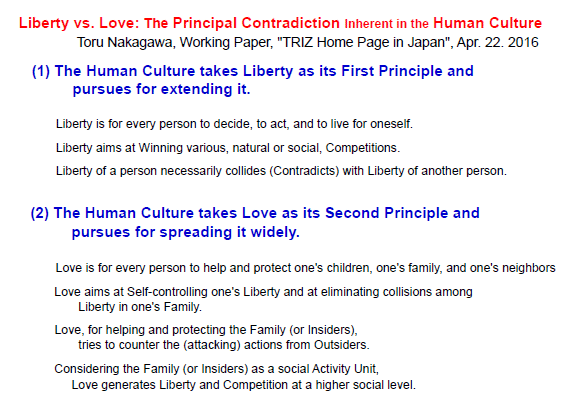

(7) Why the Principal Contradiction is So Difficult to Solve?
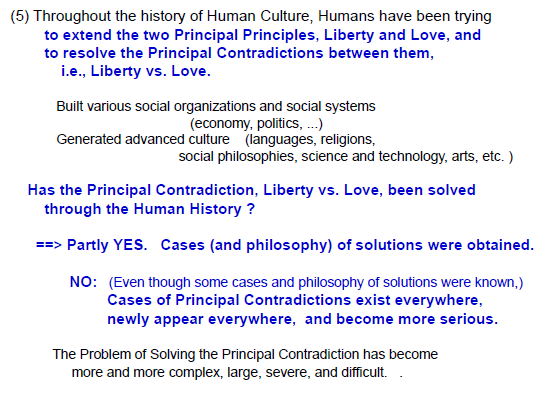
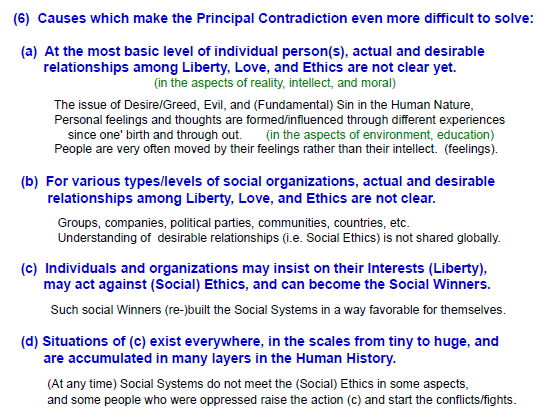
(8) Future Research Tasks
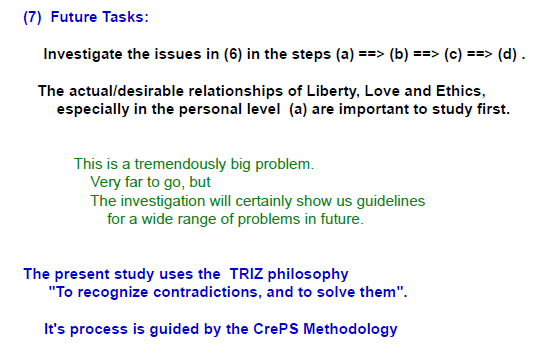
(9) Summary of the Present Research in the Six-Box Scheme
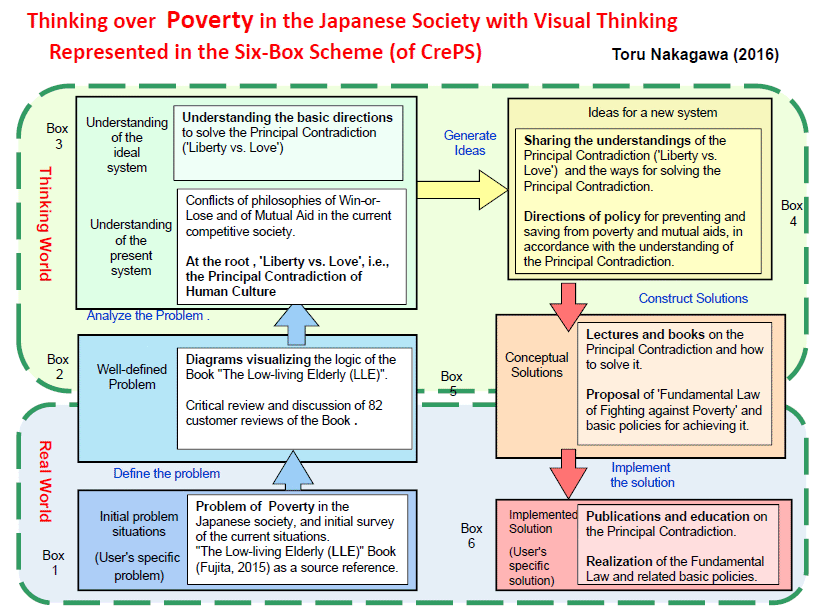
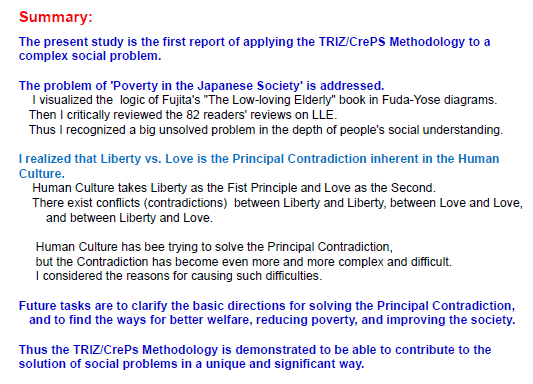
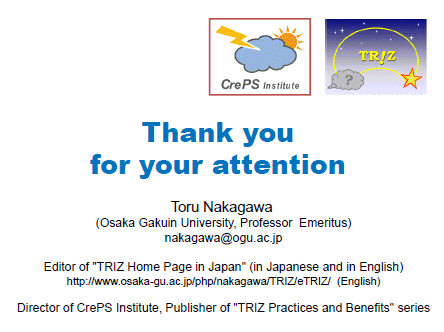
Last updated
on Sept. 9, 2016 Access point: Editor: nakagawa@ogu.ac.jp



























